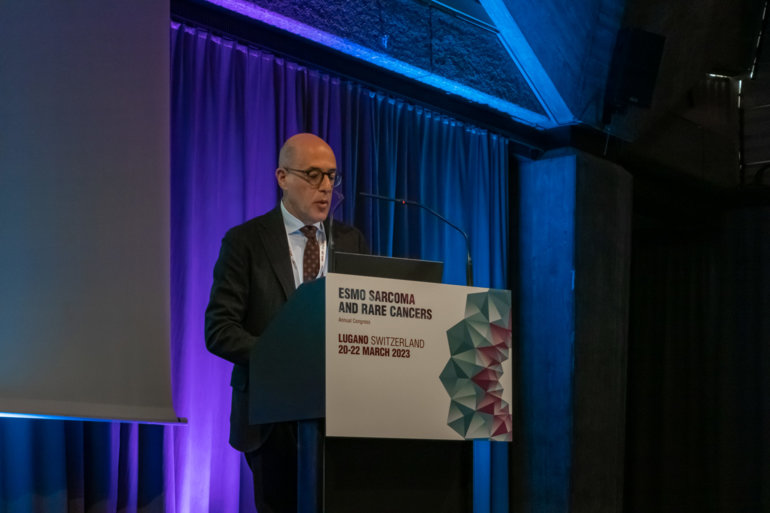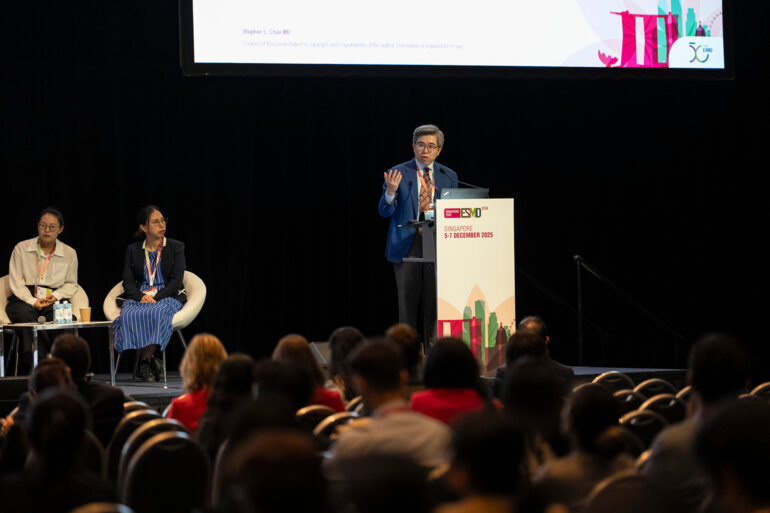Results from a study suggest that some existing inhibitors may benefit all subtypes of these rare malignancies, which currently lack effective treatments
A study presented at the ESMO Sarcoma and Rare Cancers Congress 2023 (Lugano, 20–22 March) has discovered distinct genetic profiles in seven subtypes of sinonasal cancer (Abstract 22O). Sinonasal carcinomas, which arise in the respiratory and olfactory mucosa, have an annual incidence of approximately 1 case per 100,000 inhabitants worldwide (Nat Rev Clin Oncol. 2014;11:460–472). Associated with poor prognosis, their rarity and heterogeneity have previously hampered molecular studies of tumourigenic pathways and the testing of treatment strategies.
In the study conducted at the Instituto de Investigación Sanitaria del Principado de Asturias, Oviedo, Spain, whole-exome sequencing (WES) was conducted on tumour and germline DNA from 96 patients with intestinal-type adenocarcinoma (n=39), squamous cell carcinoma (n=22), mucosal melanoma (n=15), undifferentiated carcinoma (n=10), olfactory neuroblastoma (n=7), neuroendocrine carcinoma (n=2) or teratocarcinosarcoma (n=1). Most histological subtypes commonly had mutations in TP53, NOTCH and FANCA, and amplifications in FGFR1. Recurrent subtype-unique mutations included: APC, CTNNB1, PIK3CA and KRAS in intestinal-type adenocarcinoma; EGFR ex20 and CDKN2A in squamous cell carcinoma and NRAS and NF1 in mucosal melanoma. IDH2 mutations were observed in undifferentiated carcinoma, olfactory neuroblastoma and neuroendocrine carcinoma. In addition, SMARCA4/C2 and ARID1A mutations were common features of undifferentiated carcinoma.
Based on their analyses, the authors proposed that PARP inhibitors and EZH1/2 inhibitors may benefit all types of sinonasal cancers, while PI3K/mTOR inhibitors and MEK inhibitors may be candidate therapies for intestinal-type adenocarcinoma. Given cell-cycle-related mutations in squamous cell carcinoma, inhibitors of EGFR, FGFR or CDK4/6 may be valuable. The researchers now plan to investigate these treatment strategies in preclinical in vitro models, paving the way for potential new personalised treatment options to improve management of sinonasal carcinomas in the future.
Abstract discussed:
Hermsen MA. Sinonasal cancer: Molecular biomarkers for tumor classification and targeted treatment. ESMO Sarcoma and Rare Cancers Congress 2023, Abstract 22O
Proffered Paper Session – Rare Cancers, 20.03.2023, h. 10:50 – 12:10, Hall B1







